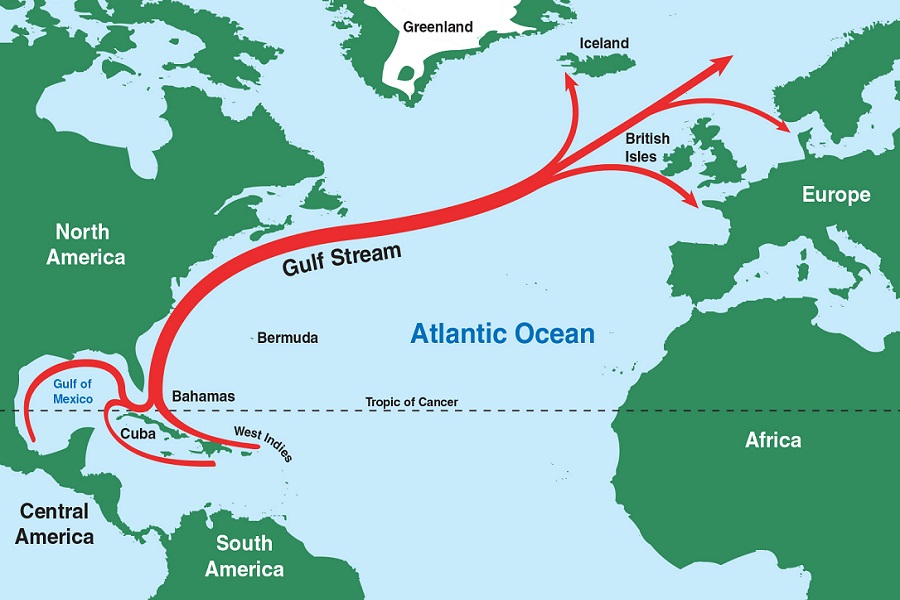
Published :
Updated :

A new study published in Nature Communications has found that the Gulf Stream could stop as early as 2025. The study, conducted by researchers from the University of Copenhagen, found that the Atlantic Meridional Overturning Circulation (AMOC), which drives the Gulf Stream, is weakening at an alarming rate.
The AMOC is a system of ocean currents that transports warm water from the Gulf of Mexico to the North Atlantic. This warm water helps to keep Europe's climate mild. However, the study found that the AMOC has weakened by about 15 per cent since the Industrial Revolution.
The researchers say that the AMOC is likely to collapse if global emissions of greenhouse gases continue to rise. This would have a devastating impact on Europe's climate, causing temperatures to drop and leading to more extreme weather events.
"The collapse of the AMOC would be a major climate tipping point," said lead author Peter Ditlevsen to the British daily The Guardian. "It would have a profound impact on the climate of Europe and the wider North Atlantic region."
The study's findings have raised concerns among scientists and policymakers. The European Union has already warned that the Gulf Stream could stop as soon as 2050.
"This is a wake-up call," said Frans Timmermans, the European Commission's vice president for climate action. "We need to take urgent action to reduce greenhouse gas emissions and prevent the collapse of the AMOC."
The study's findings highlight the urgent need to address climate change. If we do not act now, the consequences could be catastrophic.
In addition to the impact on Europe's climate, the collapse of the Gulf Stream could also have several other negative consequences, including reduced agricultural productivity in Europe, increased risk of flooding in coastal areas, disruption of marine ecosystems, risk of heat waves and droughts in North America, etc.


 For all latest news, follow The Financial Express Google News channel.
For all latest news, follow The Financial Express Google News channel.